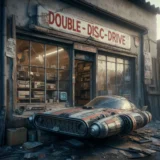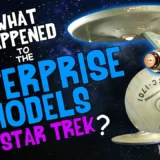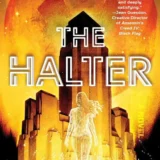“I Like Science Fiction, It’s Got Like Giant Robots and Stuff, Right?”
Science Fiction’s Self-Esteem Problem Part I: Who Reads SF Anyway? Practically No One.
Science Fiction has a self-esteem problem. Almost from its beginnings, it has striven to be taken seriously and yet it continually finds itself to be “the cockroach in the house of books”, as one critic put it. While McCrum was writing with his tongue firmly in his cheek, he is not far wrong. SF has never been given a fair shake by the literary establishment.
Certainly, within the genre, SF has masses of first rate criticism. There is the inestimable periodical , the New York Review of Science Fiction, the Science Fiction Research Association, the International Review of Science Fiction and several other smaller groups, web pages and blogs all devoted to the serious analysis of science fiction, fantasy and genre literature. As a subscriber to Science Fiction Studies I can assure you that anything within it’s pages is just as scholarly as any other literature criticism journal. I can also assure you that unless you have a Master of Arts or higher in English Literature you will not enjoy reading it (unless that’s your thing). It certainly doesn’t appeal to the casual reader even if they are genre fans. SF criticism, serious SF criticism, remains of interest only to a small hard corps of fans; the rest of the academic world couldn’t care less.
Nor is there a dearth of serious, literary Science Fiction to criticize. Off the top of my head there is Dune, the Foundation Trilogy, pretty much everything from the New Wave movement, The Man in the High Castle, Anathem and anything by Gene Wolfe. The literature of SF has escaped its pulp roots whether the establishment recognizes it or not, and that corpus is growing with every Anathem. There are, now, university Literature courses devoted to Science Fiction. SF can be, and often is, worthy of serious study and some in the establishment are beginning to realize it. This progressive mindset, however, is most certainly not the norm.
The wider literary world ignores SF at best, derides it as puerile escapism at worst and when the critics deign to stoop to recognize SF for whatever reason, they always regard it with an aloofness as if it were a sweet tasting fruit that smells bad. “Yes,” they say, “this novel is literature and worthy of regard, if you like that sort of thing.” And they never, ever refer to it as Science Fiction; it’s always Speculative Fiction, as if giving it a different name would keep the recognition from sticking in their throats. Ask any English grad if they think Kurt Vonnegut writes Science Fiction.
But why does the literary world ignore or distrust SF? There are more than a few reasons, but here is the three that matter most:
- SF’s lack of popularity
- SF’s continued schlockiness
- Hollywood
I will debate the relative merits or deficits of the pulp tradition in the next post. I am certain that noses will be put out of joint at the declaration that media tie-in SF is schlock (it just is, deal with it). What is a literary critic to make of the shelf upon shelf upon shelf upon shelf of Star Wars, Star Trek, DragonLance, insert-media-franchise-name-here books that overwhelm the rest of the spines should one of them go slumming in their local giant-sized chain-bookstore? It is easy to conclude that there is no signal in the noise when it’s all noise.
In my opinion it is the fact that SF, along with Fantasy and Horror, just isn’t that popular that leads to critical unawareness, and from this unpopularity comes all its other woes. It’s hard to notice SF when it never flies high enough to ping the radar. And when SF does ping the radar, it isn’t what we want the masses to be looking at. Don’t believe me? Hang on, here come the science numbers.
It is surprisingly difficult to find any hard statistics on books sales by genre. Most of what is out there is anecdotal or not specific enough to give a clear picture. Go ahead and google “book sales by genre” and you will see what I mean. But, undeterred, I braved the wastelands of the web and discovered what I already knew from experience (I was a bookseller at one time) to be true: SF accounts for only tiny slice of the total book market.
Non-fiction, as a general category, accounted for some 41% of the 640, 592, 000 print books sold in the United States in 2011. This leaves 160, 336, 000 adult fiction print books, which is about 25%, and if you add in juvenile fiction (22%) fiction accounts for 47% of all books sold. Keep in mind though, this is fiction as a general category. How big a piece of the pie SF gets is a more difficult thing to determine.
The only recent numbers I was able to uncover come from The Guardian newspaper in England, clearly a different and smaller market. However, there is no reason to think that Science Fiction is any more or less popular in the UK than in the US. Even if SF is more popular in the US, it won’t be so much more popular that we can’t use the UK as a proxy.
General and Literary Fiction sold 21, 581, 134 units. Science Fiction and Fantasy: 2, 389, 088. General fiction out sold SF and Fantasy combined by 9 times. If you want to go so far as to include Horror and Graphic novels (which is not unreasonable), General Fiction still outsells genre 8 to 1. So, if we apply this ratio to the US book market, genre fiction accounts for only 12% of sales at the very most. The percentage is most likely only that high because of the inclusion of juvenile fiction which tends to have more genre related material than not. A 2011 study by Simba Information (a media and publishing forecast agency) pegs SF at only 6% of total sales.
So Science Fiction is no where near as popular as we fans like to think. The vast majority of the book buying public simply isn’t buying SF, despite the giant pyramids of paperbacks and the over-piled display tables of your local big-box bookstore.
Things are changing, however. The recent explosion of ebooks is radically changing the sales demographics and the inclusion of more genre in Young Adult titles (as I mentioned above and YA is growing exponentially) is adding more and more new genre readers to our flock. For example, as a portion of digital book sales, Science Fiction was second only to Literary Fiction in 2010. We are on the cusp of a change in literature, the audiences of literature and its means of production. Never before has SF been as popular (despite how unpopular it is with the public and academics) and that popularity is growing.
Next Time: SF’s Self-Esteem Problem Part II, “You Actually Read That Crap?”









